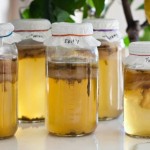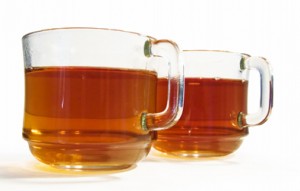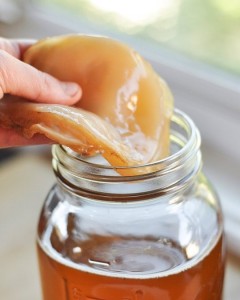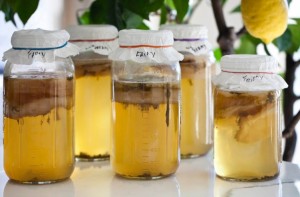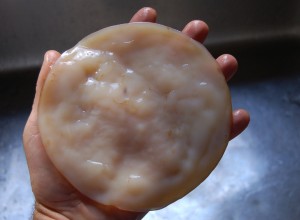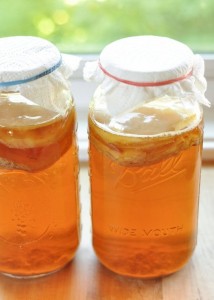Kombucha Tea
What is kombucha tea
Kombucha tea is a fermented decoction prepared by mixing a symbiotic colony of bacteria and yeast (SCOBY) with any regular tea leaves, preferably black tea or green tea, and sugar. Since the mass of yeasts and bacteria growing on the surface of the infusion resembles a mushroom, the infusion is sometimes referred to as kombucha mushroom tea even though it’s not made from mushrooms. It is considered to be one of the popular varieties of fermented tea containing essential nutrients, beneficial for several health ailments.
History and origin
Although the intake of the health-boosting drink was common among the people of East Russia in 1900, it eventually gained recognition in Europe. In 1913, kombucha was also described in German literature. During the early 20th century, exclusive research was done in Germany and Russia to finds its health benefits. Based on some experiments, its use was linked to cancer treatment since a large percentage of people in Russia were at a lower risk of cancer. It gradually came into use in the US by the mid-1990’s.
Kombucha fermented tea health benefits: What is it good for
For immunity
In addition to being rich in antioxidants beneficial for fortifying the immune system, one of its component D-Saccharic acid 1, 4-lactone (saccharolactone), formed during the fermentation process also exhibits antioxidant properties that, along with vitamin C, improves the functioning of a compromised immune system caused due to certain inflammatory disorders, cellular damage, and tumors.
Besides having anti-inflammatory properties, the acetic acid produced by the probiotics in the fermented beverage displays antimicrobial activity, providing protection from a host of bacterial and viral infections.
Detoxification
Its detoxifying ability is attributed to the presence of glucuronic acid, responsible for improving the condition of the liver by flushing out the toxins through the kidneys, which in turn has positive effects on the pancreas as well. According to some research studies, the antioxidants inhibit the liver cells from undergoing oxidative damage by the toxins. It also aids in neutralizing the harmful effects of pollutants like toxic metals, chemical wastes, and pesticides.
Helps in digestion
Its probiotics, digestive enzymes, organic acids and antioxidants play a vital role in boosting digestion, preventing the risk of several gastrointestinal conditions, including constipation, diarrhea, heartburn, and GERD. The enzymes also facilitate smooth digestion of saccharides and proteins by stimulating the glucuronic acid.
Being a source of polyphenols, it protects the digestive enzyme mucin, suppressing the secretion of gastric acids, providing relief from gastric ulcers. The probiotic-rich drink has several beneficial yeasts and bacteria that aid in restricting the growth of Candida in the gastrointestinal tract, reducing the chances of infection.
Useful for arthritis
It contains glucosamine, triggering the production of hyaluronic acid that aids in preventing degradation of collagen, thus improving the elasticity of cartilage, relieving pain, and thereby combating joint damage.
For diabetes
Although the decoction contains little sugar, an animal study has shown it to be more effective for diabetes than black tea. It may also help in repairing the damaged cells of the pancreas that play a significant role in regulating the blood sugar levels.
Weight loss
According to some previous studies, it may assist in boosting metabolism, and hence inhibiting the accumulation of fats. Having acetic acid and polyphenols also makes it effective for controlling weight.
Boosts energy levels
When prepared using black tea, it provides iron that binds to the hemoglobin in the body, increasing oxygen supply to the tissues, and thus yielding more energy, making you feel active.
For skin
Since the fermented infusion preserves the collagen in the skin tissues, its consumption can help in maintaining the elasticity and tone of the skin. Besides having skin-moisturizing effects, it may also help in reducing wrinkles, scars, age spots, acne, eczema, psoriasis, rashes, and scars.
Studies show the glucaric acid in the fermented drink to have cancer-fighting properties, making it potentially beneficial for curbing the risk of several types of cancer. Its intake might be a useful remedy for raising the levels of HDL cholesterol, minimizing the absorption of LDL cholesterol and triglycerides as well as for managing depression, stress-related anxiety problems, Lyme disease, and fibromyalgia.
Rinsing the hair with the fermented infusion can help in hair growth and prevent graying of hair.
How to prepare kombucha tea
It is usually recommended to prepare a large quantity of the tea in a single batch as it takes about 7 to 10 days to undergo proper fermentation. Carry out the procedure under sterile conditions to prevent contamination of the tea. Here are the instructions to prepare 1 gallon of the tea.
Ingredients
- A stock pot
- 16 cups of distilled water (Avoid using tap water as it may contain impurities)
- 8-10 black tea bags (You can also use green tea, oolong tea, or white tea)
- 1 cup of sugar
- 2 cups of starter tea (raw, unflavored kombucha) purchased from a store (You may use 2 cups of apple cider vinegar or white distilled vinegar as an alternative)
- A SCOBY disk bought from a reputed health food shop or online store
- A large wide-mouthed glass or non-corrosive metal bowl/jar
- A large piece of cloth or towel and rubber band
- 6 small, clean glass bottles with airtight lids
Procedure
- Add water to the pot and bring to boil
- Once the water starts boiling, remove it from heat, add sugar and stir well
- Put the teabags in the pot and let the mixture steep until it has cooled completely
- Remove the tea bags and pour the mixture into the bowl or jar
- Place the SCOBY disk in the jar/bowl and add the starter tea
- Cover the jar/bowl with the piece of cloth and tie a rubber band around it
- Keep it at room temperature away from direct sunlight and allow the mixture to undergo fermentation for 7 days
- Taste the tea after a week to check the level of sweetness and tartness prior to bottling it
- Transfer the fermented mixture into the glass bottles and refrigerate for 24 hours before drinking
NOTE– Use of ceramic pots is strictly not advisable as it may cause lead poisoning. Also, you can use other sugar substitutes like honey or stevia, it would be better to mix the tea with organic sugar for optimal fermentation.
How to make flavored kombucha tea
If you want to enhance the taste of the raw kombucha, then allow it to undergo further fermentation by adding a healthy fruit juice such as grape, ginger root, lemon, cranberry, pomegranate, or orange. Follow the steps given below to prepare flavored kombucha drink.
- Pour 4 cups of the desired fruit juice into a large glass jar. You may also use 5 small glass jars to fill them about 1/5 full with the juice.
- Add the fermented tea into the jar/jars and close tightly with the lid
- Let the mixture ferment for 2 to 7 days at room temperature, allowing it to undergo carbonation
- Refrigerate the tasty, carbonated drink prior to drinking
How to store the SCOBY disk
Before transferring the fermented tea into the bottles for storage, take out the SCOBY disk from the jar/bowl with clean hands and place it on a sterilized bowl or plate. Another way is by pouring off the fermented decoction while retaining the SCOBY disk and some amount of the liquid to be used as starter tea for preparing the next batch of kombucha tea.
Safety and Precautions
Side effects
Although it’s safe for drinking in normal food amounts, the fermented beverage has been linked to abdominal problems, nausea, vomiting, headaches and allergy in some cases. Preparing it at home under unsterile conditions carries a high risk of contamination, giving rise to disease-causing bacteria. Therefore, those with a weak immune system should avoid the home-brewed tea. There is also a possibility of having lactic acidosis due to its lactic acid content.
It has caffeine that may not be good for people with anxiety disorders, diarrhea, and irritable bowel syndrome (IBS). Diabetic patients should monitor their blood sugar levels from time to time as the tea contains a small quantity of sugar.
During pregnancy
It is not recommended for consumption by pregnant women, due to the presence of alcohol and caffeine. Homemade kombucha should especially be avoided. As there is no strong evidence to supports its safety for drinking by nursing mothers, it is advisable to avoid during this period as w
Where to buy
As homemade kombucha might be in risk of contamination, some people may prefer it in the ready-to-drink bottled form. You can consider purchasing the canned tea as well as tea bags of its popular variations such as kombucha green tea from any local herbal tea shop or online stores.
References
- https://en.wikipedia.org/wiki/Kombucha
- http://www.mayoclinic.org/healthy-lifestyle/consumer-health/expert-answers/kombucha-tea/faq-20058126
- https://www.foodrenegade.com/kombucha-health-benefits/
- https://www.organicfacts.net/health-benefits/beverage/health-benefits-of-kombucha.html
- http://www.webmd.com/vitamins-supplements/ingredientmono-538-kombucha%20tea.aspx?activeingredientid=538&activeingredientname=kombucha%20tea
- https://www.arishtam.com/kombucha-recipe/home-brew-tutorials/
- http://www.thekitchn.com/how-to-make-kombucha-tea-at-home-cooking-lessons-from-the-kitchn-173858
Article was last reviewed on 5th December 2022
Related Articles
Leave a Reply
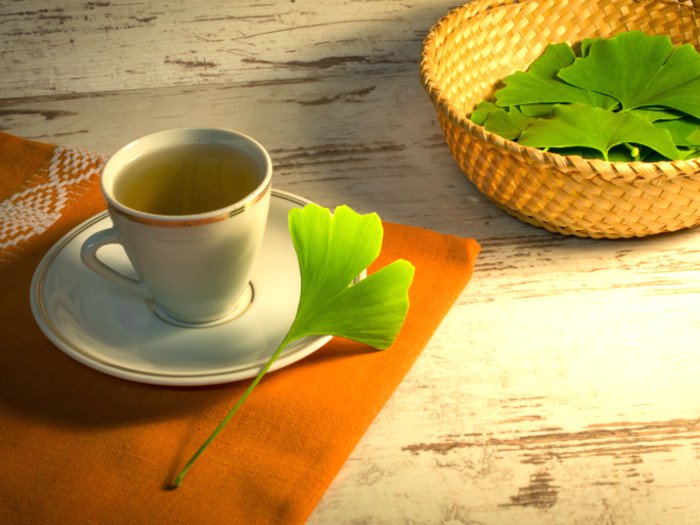
Ginkgo Biloba Tea
The Ginkgo Biloba tea is an herbal infusion obtained from the extract of the dried leaves
Read more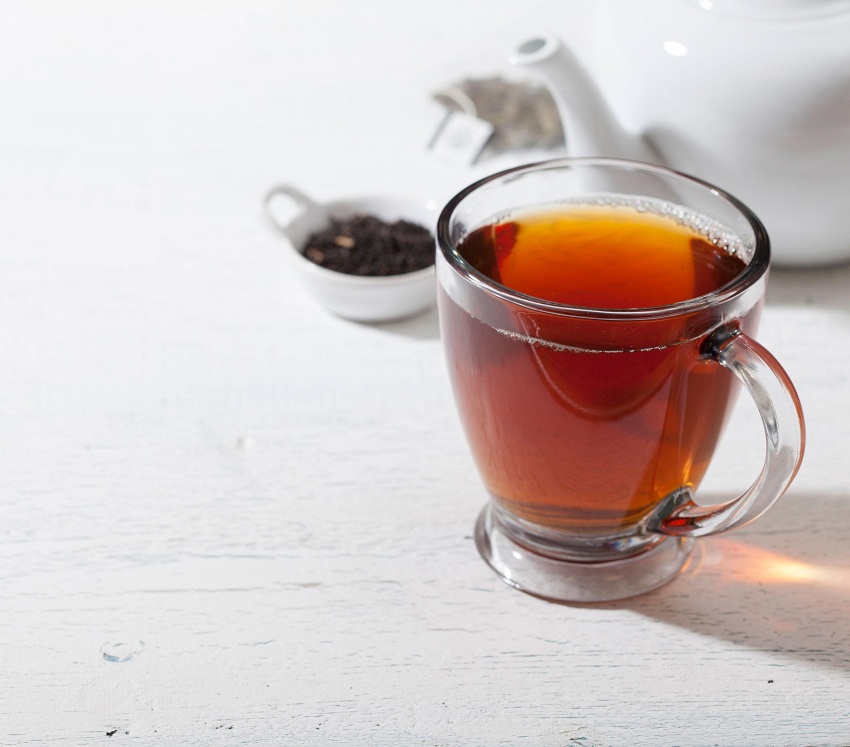
Black Tea
Black tea, belonging to the same group as the green, white and oolong teas is the most oxi
Read more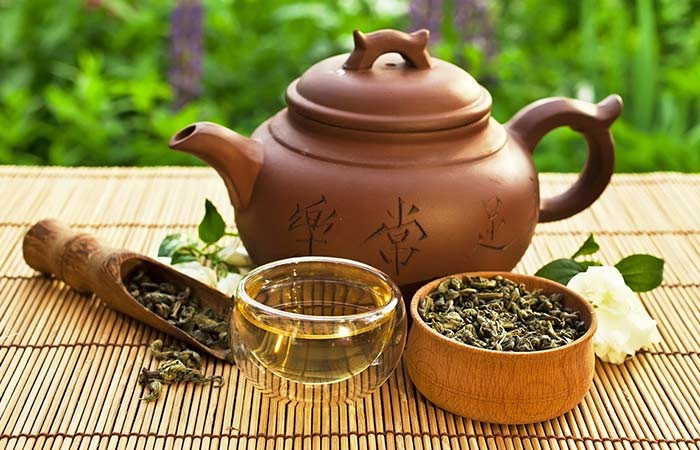
Oolong Tea
What is oolong tea Oolong, a traditional beverage of China, is prepared from the buds, st
Read more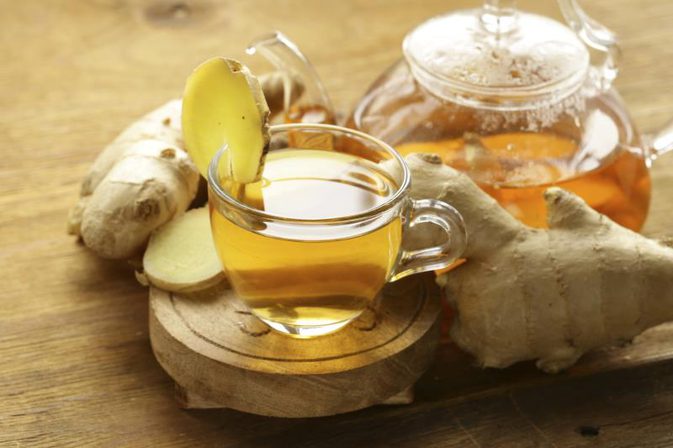
Ginger Tea
Ginger tea, prepared from the roots of ginger, is a popular herbal beverage of Asia. Becau
Read more
